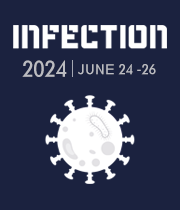Title : Will high-risk populations and health practitioners find presumptive antibiotic treatments an acceptable and feasible solution to rising incidence and prevalence of bacterial STIs: What we know so far.
Abstract:
Background: A recent resurgence of bacterial sexually transmitted infections (STIs) is placing a major burden on high-risk populations, physicians, and the healthcare system. Antibiotic pre-exposure prophylaxis (STI PrEP) is a suggested preventative solution.
Objective: To systematically investigate the extent to which existing research examines the acceptability and feasibility of population-based presumptive treatment and models of care for bacterial STIs among high-risk populations and clinicians.
Methods: Adhering to PRISMA-P guidelines, a comprehensive search strategy was developed and executed in August 2023 across six databases with additional citation screening.
Results: 8 of the 912 retrieved studies met the inclusion criteria. These studies were all conducted in highincome countries, used various methods, and all focused on sexual minority men. Findings consistently identified moderate to high levels of acceptability among GBMSM (54.3% - 67.5%). Factors such as engagement in perceived ‘high risk’ sexual encounters, and past diagnosis of STIs strengthened acceptability, while others (e.g., antimicrobial resistance concerns and stigma) act as barriers. Only one study included the perspectives of healthcare workers, indicating a moderate willingness to prescribe (43.3%) would increase under governing-body endorsement (89.5%).
Discussion: Overall, while there is some promise of STI PrEP acceptability among GBMSM, due to the limited and homogenous research in this area, vast gaps in knowledge remain. Knowledge transfer and feasibility and hence, the sustainability and capacity needed for the success of STI PrEP is yet to be examined and understood in any population. Given the growing acceptance and use of HIV PrEP and PEP in the last decade, current research is almost exclusively focused on acceptability of STI PrEP among sexual minority males. The perspectives of high-risk groups beyond GBMSM are unknown. Populations including heterosexual women, sex workers, CALD populations, and Indigenous communities face a similar risk to GBMSM, however, exist and behave within diverse socio-cultural contexts. These differences are likely to be mirrored in their levels of acceptance toward STI PrEP interventions. For example, heterosexual women have recently experienced some sexual-health liberations in relation to contraceptive advancements coinciding with primarily condom dependency for STI avoidance and are consequently at higher risk of bacterial STI transmission. Yet, these women may be harder to reach and more hesitant to accept and adopt STI PrEP than GBMSM due to cultural taboos and social stigmas tied to perceived promiscuity. Similarly, lower socio-economic groups, often also ethnic/racial minorities, have historically expressed skepticism, fear, and distrust in the suggestions of western, colonising health institutions regarding condom use and STI prevention. This has been, and will likely remain, a barrier to acceptance and uptake. In the face of a resurgence of bacterial STIs, understanding these barriers is necessary to consider, develop and implement initiatives to enable efficacious implementation of STI PrEP, and prevent worsening of the health crisis.
Conclusion: Despite the paucity of existing knowledge, this review has critically analysed the knowledgebase and its gaps to offer great insights into the implications for future research. The key findings, in the context of a growing bacterial STI crisis, indicate the need for urgent research into acceptability, feasibility and knowledge transfer among diverse high-risk groups, healthcare professionals, and policy makers.



